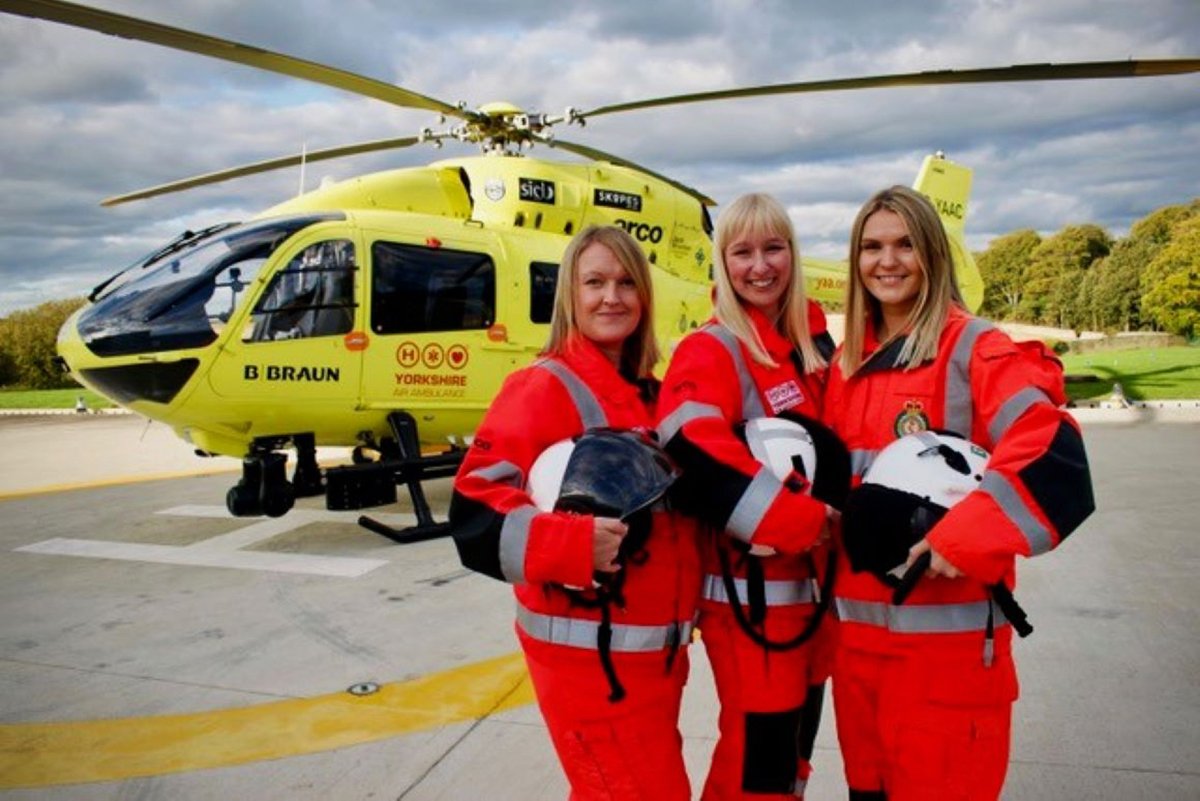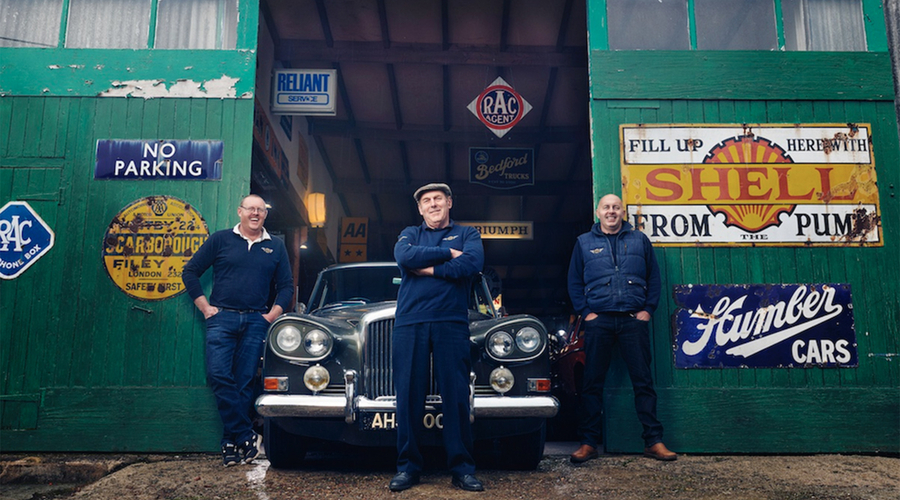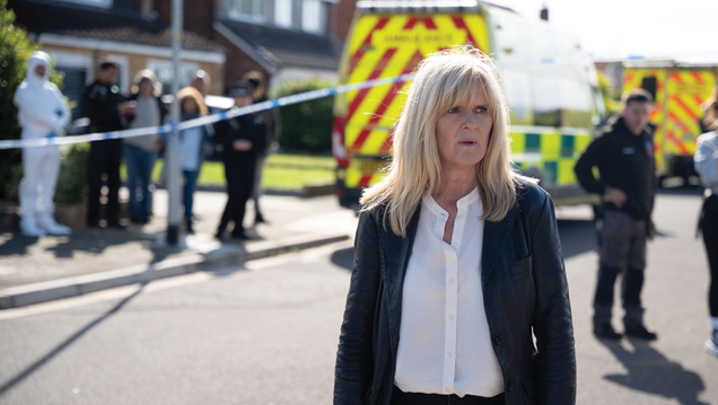Anne Dawson profiles Bangers and Cash producer Air TV, which is committed to long-term contracts and extensive training for its new recruits.
A wartime aircraft hangar at Leeds East Airport is an unlikely setting for the next generation of out-of-London TV talent to start their careers, but that’s exactly what’s happening at Air TV.
The company – run by ex-BBC execs Matt Richards, Andy Joynson and Ian Cundall – is passionate about attracting, training and retaining young talent to work on their fast-growing slate of factual shows.
In offices where the RAF once trained Spitfire pilots for the Battle of Britain, at the embryonic Yorkshire Studios, Air is preparing its recruits for some of the most demanding roles in modern TV.
Series such as Bangers and Cash – the most-watched programme on UKTV’s Yesterday channel – Really’s Helicopter ER, W’s 999 Rescue Squad, HGTV’s Derelict Rescue and Yesterday’s Warbird Workshop demand the kind of multi-skilling that few companies are brave enough to attempt.
“It means we expect a lot from our staff, especially those working on blue-light shows,” says Richards. “In return, we reward them with long contracts and extensive training that goes well beyond TV skills.”
Some of the team are trained helicopter technical crew members, qualified to help operate air ambulances; some are even trained to safely use breathing apparatus in smoke or to scale tower cranes alongside specialist paramedics. All have advanced first-aid qualifications.
It’s not unusual for a shooting producer-director to scramble by air to a major accident in the morning, film it and then edit the footage in the afternoon. Air also takes pride in encouraging its staff to work across the firm’s entire output, from a classic car show to a new fly-on-the-wall series based in North Yorkshire still to be announced by the commissioning broadcaster.
Having acquired such a range of marketable skills, you might expect a fair number of their team to set their sights on new horizons, but their staff turnover is glacial. With a workforce of 40, only three people have ever left the company since it was formed. Many have permanent, rather than freelance, roles.
“We built our business on bulk series – 10 episodes is a short run for us – and that allows us to commit long-term to people who commit to us,” explains Cundall. “We’re also keen to take talent via less orthodox routes. I’m not a graduate and I don’t see why you need a degree to make great TV.”
Air was set up by Joynson and Cundall in 2015. Its first commission was Emergency Rescue Down Under for BBC Daytime. Richards joined a year later as series producer; since April 2021, he has been the managing director. The three met while working at BBC Yorkshire.
Joynson began his broadcasting career as the Lone Groover on a Thursday-night rock show for BFBS Radio in Cyprus but has spent most of his working life in Yorkshire. Cundall started out as a reporter on The Northern Echo and worked on-screen for ITV prior to a BBC career as an editor for network television in the English regions and is a former deputy head of BBC North. Richards joined Air in 2016, following a stint on The One Show and several daytime series.

Maybe there is something about Air’s distance from London that breeds an independent outlook and a sceptical approach to the latest trends coming from the capital. As winners of the Yorkshire RTS Independent Spirit Award for two years running, it is clear that Air TV’s directors are not ones to sheepishly follow a trend.
Air currently has 110 hours in production, including 30 episodes of Bangers and Cash, 30 Helicopter ERs plus 10 Derelict Rescues and two further, as-yet unannounced, new series.
They seem to love what they do. Richards explains that his passion is for renovating buildings, while Joynson’s is for cars; unsurprisingly, as a qualified pilot, Cundall’s is for aircraft. “We are having fun,” says Richards. “If you have a passion for the subject you are filming, it comes across in the programmes you make, and that makes for better TV.”
Well, it’s not rocket science (excuse the pun), but the desire to recruit people with passion for the work they will do for the firm is high on Air’s agenda.
Recently named as one of Broadcast’s “Best places to work”, Air’s new recruits include RTS bursary scholar Jake Smith. Air was keen to offer him an opportunity after Joynson saw Smith’s RTS end-of-year video. “I loved it,” he recalls. “Jake had clearly thought about it, but what he produced was not overembellished. It had a very genuine feel to it – it was authentic and gave us a very clear idea of who Jake was and his interest in cameras and visual style.”
Smith’s video is also drily humorous, and gently pokes fun at a slightly less than fluent start – “subtitling the word ‘erm’ was a masterstroke!”, notes Joynson.
Air puts a high value on nurturing its staff and giving them the space to develop their abilities and discover where they could fit in the company. Junior staff are encouraged to spend time in different parts of the business. That way, they can see where their talents lie. “We don’t always get it right,” says Joynson. “We’re not perfect. But we do try to support our staff even if, for one reason or another, they don’t end up staying.”
So how is Air able to maintain this “old school” approach to its employment practices while others see short-term recruitment as the only option? There is probably a critical threshold of work necessary to sustain the number of core staff employed by Air. The economics of a Yorkshire base also help.
According to Ofcom’s 2020 diversity and equal opportunities report, “TV production in the nations and regions plays a crucial role in helping to maintain a healthy UK production sector, driving economic growth and thousands of job opportunities throughout the UK and benefiting viewers by delivering a diverse range of programmes and editorial perspectives.”
Part of the legacy of the pandemic is a growing recognition of the opportunities for remote working. This may strengthen the case for independents to consider the location of their staff, if not their company.
Our RTS bursary scholars are located across the UK, and all come from lower-income backgrounds. For them, this approach to staffing presents a real opportunity. Surviving in the short-term-contract and freelance world is not an easy option, nor is it a happy place to grow their talent and provide opportunities to try things out.
Juggling contracts and locations is a real challenge when you don’t have financial resources behind you. Despite the not inconsiderable challenges they set their staff, the independent spirit of companies such as Air TV is a much more creative and forgiving environment for people starting their careers than the precarious world of short-term contracts. If this is old school, long may it continue.
Anne Dawson is the RTS bursaries manager.
- Bursary scholar Jake Smith’s video can be seen at: https://bit.ly/Jake-Smith.
- The RTS bursaries are open to applicants until 30 September 2021. For more information or to apply go to: rts.org.uk/education-and-training-pages/bursaries.






